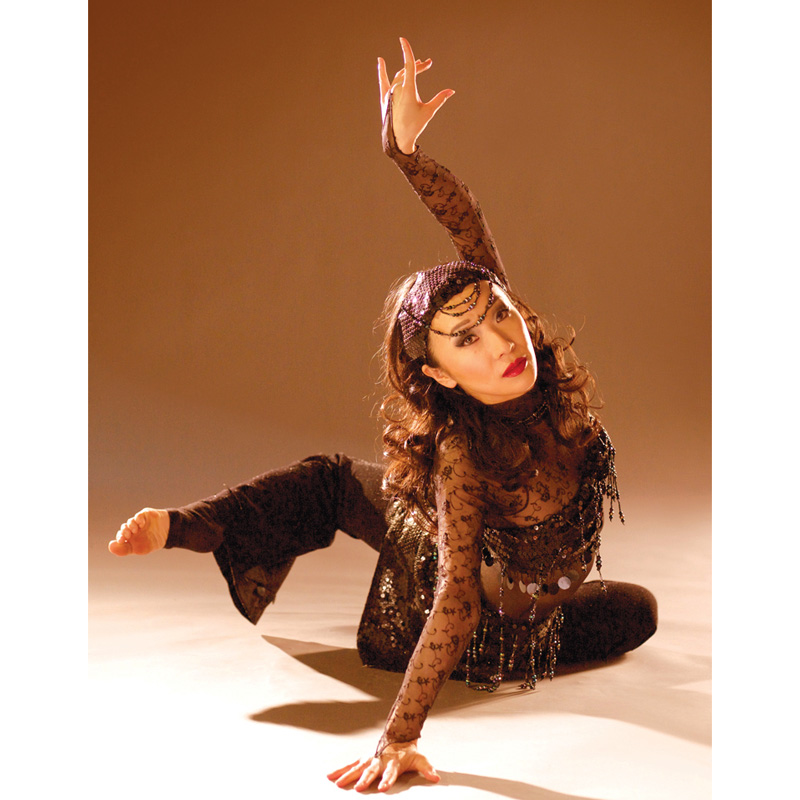Bashar Barazi is the president of 3B Media, Inc., the parent company of MAQAM, a sponsor of the 2006 Gay Games VII in Chicago. MAQAM brought artists to perform at the Opening/Closing Ceremonies and is now producing A Dream of Arabia. Barazi spoke to Windy City Times on the phone about the upcoming show.

Windy City Times: Tell us about your show.
Bashar Barazi: The show is called A Dream of Arabia, and it is the first theatrical presentation of Middle Eastern music and dance. It’s a full Broadway-style production, on a very large scale, that attempts to bring together the dances and the music of a very wide region that today is known as the Middle East—North Africa and Arabia—and makes it accessible to a Western audience.
WCT: How is this different from other performances of Middle Eastern dance and music?
BB: The only instances we know of tend to be at the international festivals where a traveling troupe, typically representing a government or a Ministry of Arts and Culture, does some type of a small performance. This is the first time that something on this scale has been done.
WCT: What’s the scale?
BB: It’s a cast of 21 dancers, [and] a crew ranging [in size] from 50 to 76. We do about a 146 costume changes during the show, which averages to 2 costume changes per minute. The music has been produced, for the most part, specifically for the show. There’s a story line, in two acts, that’s been written specifically for the show. We did international auditions to find the right cast and the stage sets have been built specifically to reflect the environment and replicate hat tof the Middle East. It tries to incorporate the four elements: water, earth, fire, air.
WCT: “Arabia” is not a term you hear very much these days. You write about Orientalism [on the Web site]. So why do you use the term Arabia?
BB: It’s a dream of Arabia. We had a dream of why we wanted to do this: a cultural revival, of bringing the world together, of building a bridge through art, performance, and music through which we can find we’re more alike than not. Historically speaking, much of the term the Middle East is, I believe, a geopolitical term because: what’s the middle of the East? We wanted to resurrect the idea of a region that has no borders. Many cultures have arisen in that region. Everyone’s impression is that it’s conflict and strife, when [in fact] people there have created the universal language [of dance and music].
WCT: You write about belly dancing as a Western construct.
BB: Belly dancing is purely a Western invention. It’s not an ancient Middle Eastern dance. It was created here at the Chicago World’s Fair in 1893 by Saul Bloom. He hired a burlesque dancer, created a tune that has no basis in Arabic music and introduced it. The scandalous nature of the dance captured the Victorian imagination. Afterwards, Hollywood took the concept. Even the costumes became these bejeweled creations.
WCT: But readers might be curious to know why the Web site features a woman who does look a lot like a belly dancer.
BB: Those costumes are not what you’d consider belly-dance costumes. That costume was handmade with Swarovski crystals and doesn’t show legs. The show is a theatrical presentation of the dance so it’s fused with elements, and takes it to a different level.
WCT: What do you want to accomplish with this show?
BB: That people who come to see the show clearly be very entertained; it’s a spectacular theatrical experience. But also that they leave more educated and more hopeful. It’s a tremendous privilege to have a voice that reaches out to thousands of people. I’d hope that they can see the culture in a different way. Learning alleviates fear, and people see that we”re all human beings.
A Dream of Arabia will take place June 12-15 [2008] at the Dominican University Performing Arts Center’s Lund Auditorium, 7900 W. Division, River Forest. See www.ADreamOfArabia.com or call 708-488-5000.